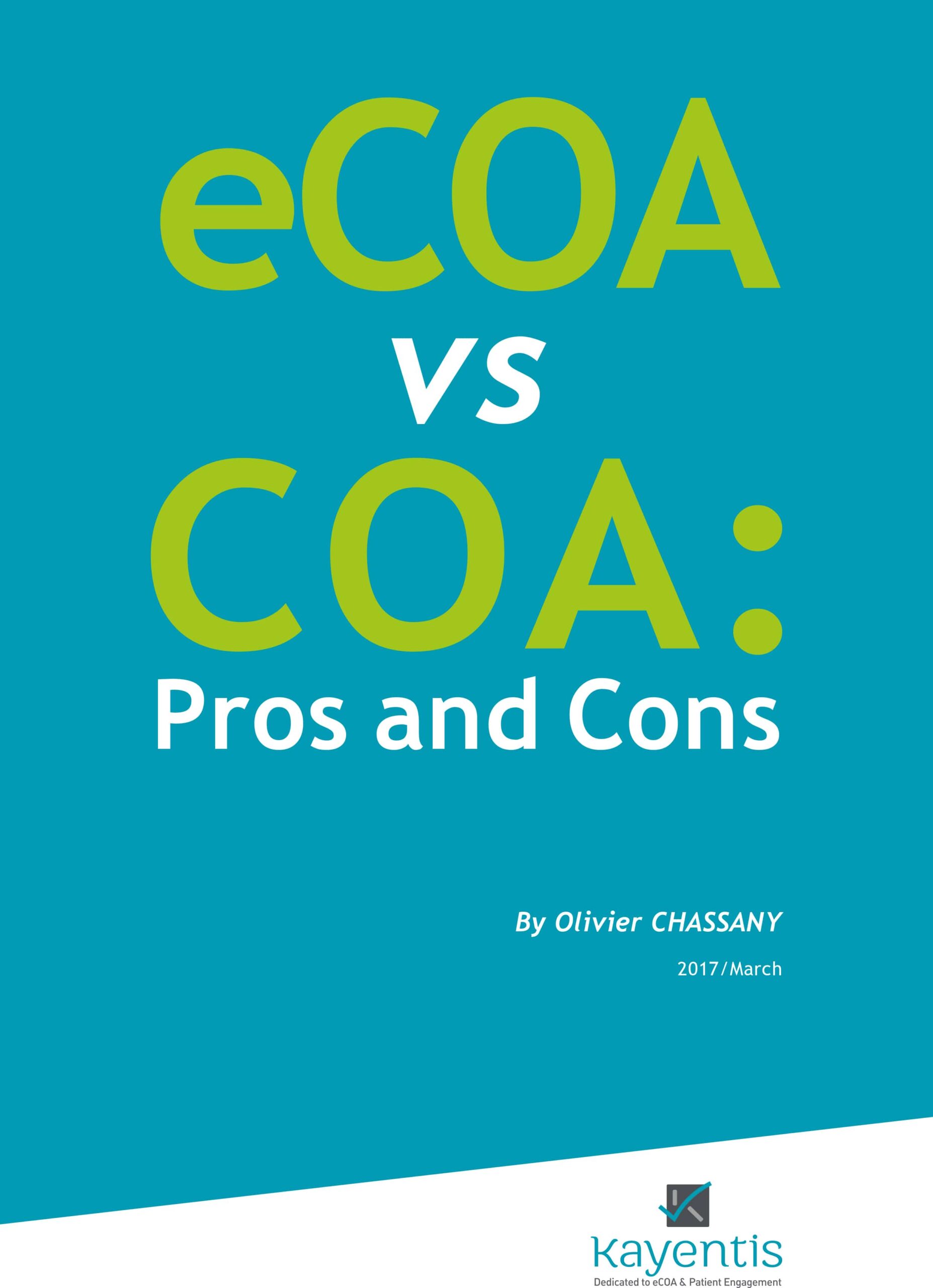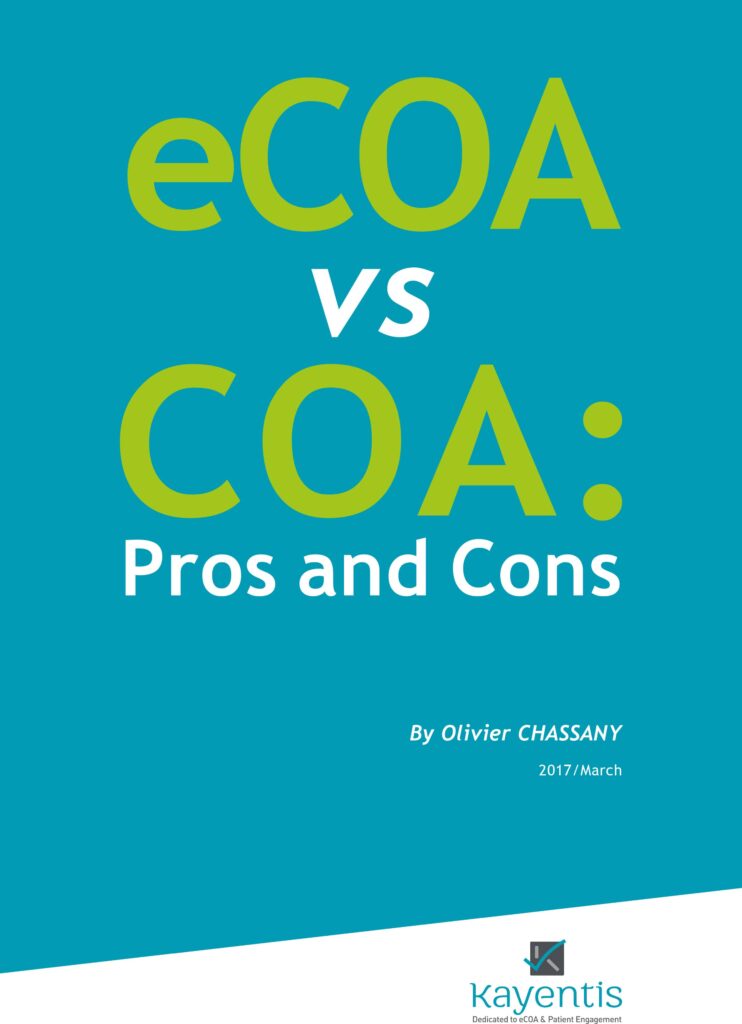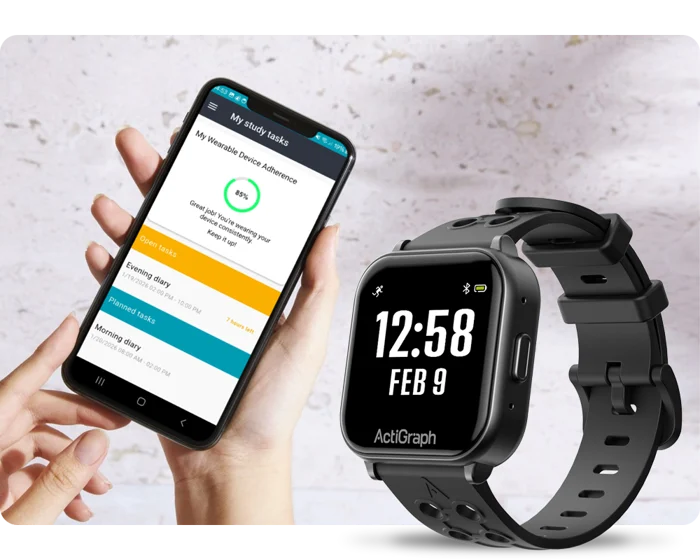Electronic tools allow the collection of data (electronic Clinical Outcomes Assessments [eCOA]) from patients, physicians, observers (mainly parents), and caregivers using smartphones, tablets, or the internet. Over recent years, due to numerous advantages, such tools are increasingly preferred to paper questionnaires for primary and/or secondary endpoint data collection in clinical and epidemiological studies. That’s the reason why the pros and cons of eCOA vs COA have to be considered.
The wide use of eCOAs in clinical trials has largely confirmed the theoretical advantages of electronic over paper questionnaires, including improved data quality and better confidence in these data. Here are the pros and cons regarding eCOA vs COA solutions.
By Olivier Chassany, Professor of PROs & Clinical Endpoints research at the University Paris-Diderot, France
TO READ THE WHITE PAPER, CLICK BELOW:
[tag url=”https://kayentis.com/wp-content/uploads/2017/03/kayentis_whitepaper_ecoa_vs_coa.pdf” event=”click dossier eCOA vs COA”]

Interested by the differences between eCOA and COA? Click here to see our infography regarding 7 lesser know advantages of eCOA over COA.







